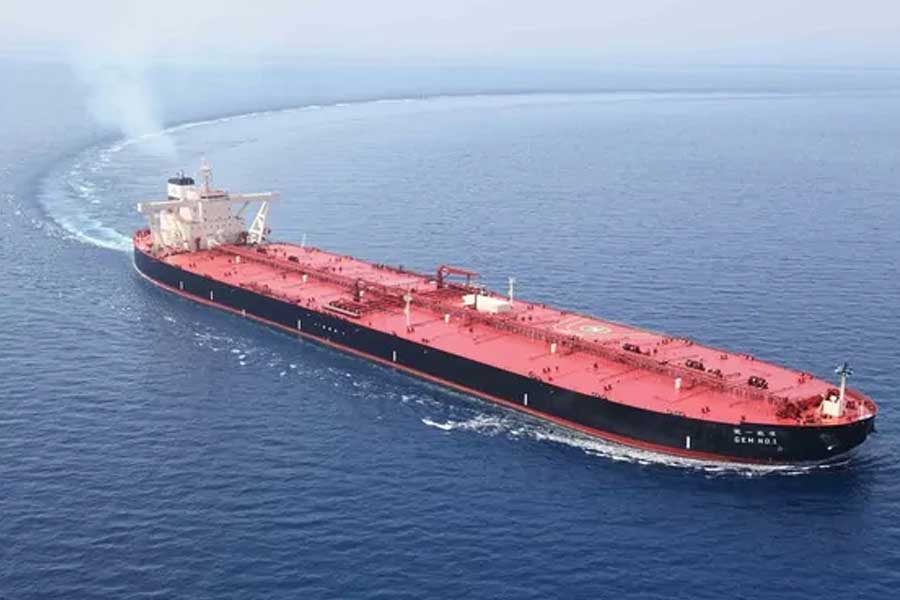Gatik Ship Management, the mysterious Mumbai-based company that has grown in barely a year to become one of the world’s biggest oil tanker owners, is doing a mid-sea turnaround.
Since Russia’s invasion of Ukraine, the obscure company had gone from owning to two tankers to 58 ships, putting it in an exclusive club of companies worldwide owning more than 50 tankers.
Now Gatik’s started selling some of its tankers, which have been focusing heavily on transporting Russian oil to India.
Gatik which has a small office in Mumbai’s Neptune Mall, has stopped its weekly ship purchases and has instead sold several oil tankers in recent weeks. It’s thought Gatik now has a fleet of 10 fewer ships than at its peak.
“Basically Gatik has gotten too big. They are slowly reallocating tankers away from Gatik,” says Viktor Katona, head of crude market analysis at Kpler, a data analytics firm. Katona adds: “Gatik has become too easy to sanction. Several ships have had their P&I insurance taken away.”
Before Russia’s war against Ukraine, Gatik shipped crude all over the world. But most of the expanded Gatik fleet is thought to be involved in the Russia-India crude oil business which has grown enormously in the last year following Western sanctions on Russian oil exports.
In April, India, which has remained neutral in the Ukraine conflict, got about 2.1 million barrels per day (bpd) of crude from Russia, or close to 50 per cent of its imports. Even up to February 2022 India bought negligible quantities of crude oil from Russia - possibly around 1 per cent.
Experts speculate the sudden course correction is happening because the company has attracted too much attention globally due to its hectic ship-buying spree which may have cost up to $1.6 billion according to VesselValue, which tracks tanker sales. This put it amongst the 10largest tanker owners. The 1,361 other tanker firms own less than 10 ships each, according to maritime magazine tanker sales-tracker Vessels Value.
Who is Gatik’s cash-rich owner? The Financial Times, which put the mystery shipowner under the microscope this week, quoted an employee of a firm called Buena Vista as saying Gatik was “part of the group” but declining to answer further questions. But Indian officials involved in buying Russian crude told the FT they dealt directly with Russian oil giant Rosneft.
Said the FT: “Shipbrokers, analysts and commodity traders suspect a link with its biggest client: the Russian oil giant Rosneft.” Rosneft is also the 49 per cent owner of Indian refinery company Nayara Energy which has been a big buyer of Russian oil in the last year. Nayara was formerly Essar Oil.
“By early April, however, none of Gatik’s ships held insurance from any of the recognised large mutual providers,” said the FT.
Adds Katona: “A lot of insurance companies fear there might be repercussions. They might get into trouble. They have decided to cut off Gatik. So Gatik is basically reacting to that happening.” To obtain Western insurance, companies must abide to the $60 G7 price cap on Russian oil sales at the port of loading.
Rosneft, Russia’s biggest oil exporter, signed a deal in March with IndianOil Corporation under which it will supply more discounted oil to the Indian company.
India is thought to be getting oil at around a $10 discount to the Brent Crude rate which was $72 on Friday.
In May, India’s purchases of Russian crude may dip slightly to around 2 million bpd. That’s the first time in several months when it has fallen even though only slightly. “There may not be room to grow,” says Katona.
Iraq, which was till last year one of India’s biggest suppliers of crude, is thought to be working hard to regain its position here. Saudi Arabia, however, is focusing on supplying the Chinese market.

